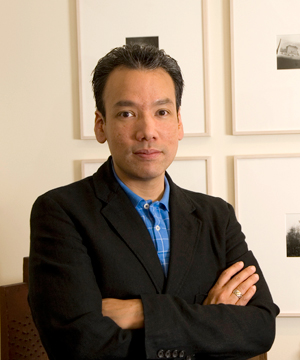Growing proliferation of Massive Open Online Courses (MOOCs) is having a profound (if not fully understood) effect on education. MOOCs, compared to traditional classrooms, have impressively high enrollment, introduce more diversity into student population, and show better learning outcomes among students. MOOCs are arguably "changing higher learning forever".
However, learning is not the sole function of education; creating knowledge, or doing research, is another responsibility of academia. While MOOCs produce armies of learners, it is unclear if they are going to inspire the next generation of scientific discovery. The effect of growing proliferation of MOOCs on creating knowledge is not yet known, nor has it been studied systematically.
In a traditional campus setting, students typically become interested in research in several ways. They hear about latest research advances from professors or teaching assistants for class. Naturally, they ask about the concepts that piqued their interest and get involved in research work to find answers. Alternatively, students receive assignments with a research component, such as laboratory in life sciences or research papers in social sciences. Finally, they receive comments on their work from instructors, allowing for scientific dialog and collaboration.
To learn how research would work in the MOOC setting, I interviewed Prof. Robert Lue, faculty director of HarvardX and professor of the Practice of Molecular and Cellular Biology. Prof. Lue teaches a wildly popular Harvard course Life Sciences 1a. Prof. Lue's own research focuses on defining and assessing how large research universities like Harvard can effectively foster new generations of scientists.

Prof. Robert Lue, Harvard University
Prof. Lue says that while MOOCs do not repeat traditional paths to research, they introduce students to scientific way of thinking and encourage knowledge dissemination in general. He thinks that MOOCs can help young researchers by introducing latest research in lectures; aiding student-to-faculty interaction in flipped classrooms; focusing research assignments on scientific thinking and interpretation rather than mechanics of research; and introducing innovative peer grading, similar to the process of academic peer review.
0.MOOC Professors Incorporate Latest Research into Lectures
According to Prof. Lue, MOOCs can be quite modifiable, and allow introducing students to the research findings that just came out. Unlike textbooks, which take a few years to publish and sometimes sound dated when mentioning "new research," MOOCs can introduce state-of-the-art research in a matter of months, rather than years. However, in the experience of Michael White, a systems biologist at the Department of Genetics and the Center for Genome Sciences and Systems Biology, MOOCs are still slower than professors preparing for traditional lectures on weekly basis (in which case, class content ultimately depends on the professor's interest in latest research).
1. Students and Instructors Interact in Flipped Classroom Setting
Prof. Lue sees vast potential for encouraging student-to-faculty interaction and inspiring creativity when MOOCs are used in the flipped classroom. Flipped classroom in this context means that students watch the MOOC videos beforehand, and come to class to engage in the discussion, similar to section component in traditional classrooms. Similarly, Coursera co-founder Daphne Koller expressed support of flipped classroom model using MOOCs. Dr. Mohamed Noor, a biology professor at Duke, experimented with flipped classroom format when teaching his Genetics and Evolution class at Duke.
2. MOOC Assignments Teach Scientific Way of Thinking Instead of Mechanics
Class assignments with a research component represent another popular way to get a taste of research. In the MOOC environment, assignments have to get creative to suit various access levels to research facilities among students. Prof. Lue's team is experimenting with adding research training for the next MOOC class. While they cannot guarantee access to laboratories for all their students, they can explain how to generate hypotheses, interpret research findings, or read academic literature critically, all of which develop research skills for students.
3. MOOCs Introduce Peer Review of Creative Assignments
Grading creative assignments is another challenge for inspiring research in the MOOC contest. No one knows what the future holds but currently, artificial intelligence applications (AI) are not quite good enough to enable the intelligent grading of creative research assignments, Lue said. However, peer grading, when properly structured and organized, holds a lot of promise. Also, peer grading is reminiscent of peer review process in academic publishing and can actually introduce students to research processes typical for professional researchers.
Indeed, MOOC providers are experimenting with peer grading, or alumni grading, as explained by Coursera co-founder Andrew Ng. Studies are currently trying to examine whether peer grading in MOOCs can be comparable to grading by trained teaching assistants. Of course peer grading has its flaws: sometimes, peer grading inadvertently reduces itself to checking for material comprehension rather than teaching a way of thinking and writing, which ultimately is a responsibility of professors, as noted by Jonathan Rees, Professor of history at Colorado State University - Pueblo.
MOOCs: Ramp to creating knowledge
Finally, Lue said, while MOOCs are not specifically designed to engage students in research, they can be seen as a ramp that accelerates knowledge acquisition and introduces students to research thinking and process.
Whether MOOCs can create the next Einstein, we don't know. We, for one, hope that MOOCs will inspire and empower many brilliant researchers, inspiring scientific progress. There is so much more to the MOOCs than watching online lectures and absorbing information. MOOCs are very new (hard to remember that HarvardX only appeared less than a year ago!), but they hold tremendous potential for both dissemination and creation of new knowledge.
